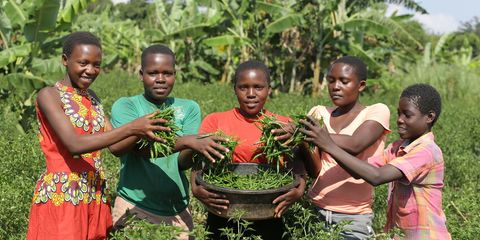Melisha is chairperson of a girls’ education movement club. With her fellow clubmates she’s getting girls back into school, promoting healthy menstruation and looking after the environment.
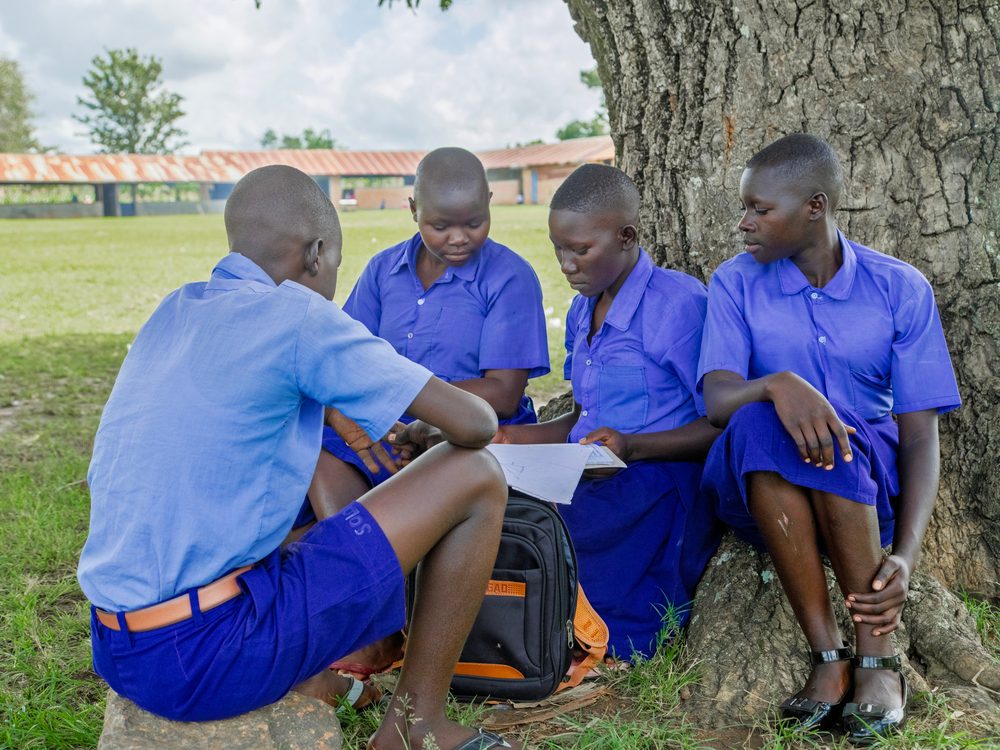
Melisha is one of 9,300 girls’ education movement (GEM) club members driving efforts to support re-enrolment and thriving of out of school children. “Each club constitutes a minimum of 20 girls and 10 boys totalling 30 members,” says Melisha, adding that membership is inclusive and encourages the participation of learners with disabilities.
The 400 clubs are playing a critical role in supporting girls and boys in articulating issues and barriers that affect their access to education within the school and in the wider community, empowering them to identify and advocate for solutions.
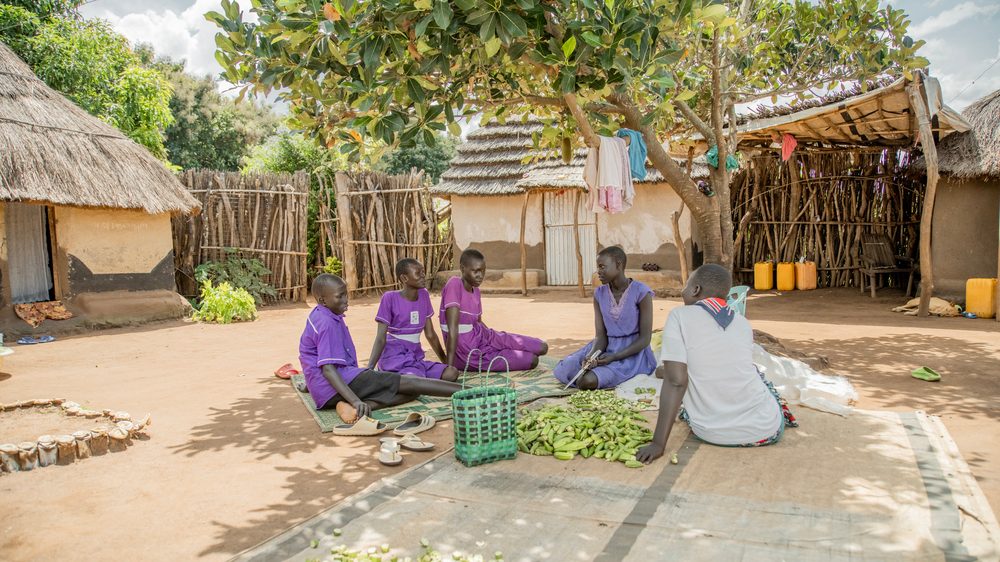
She says that, during the “Back to school” campaigns, members mobilise their peers to return to school. “We go to the community and look for our friends who have not returned to school at the beginning of the term and we encourage them to come back to class.” explains Melisha.
Club activities keep members together
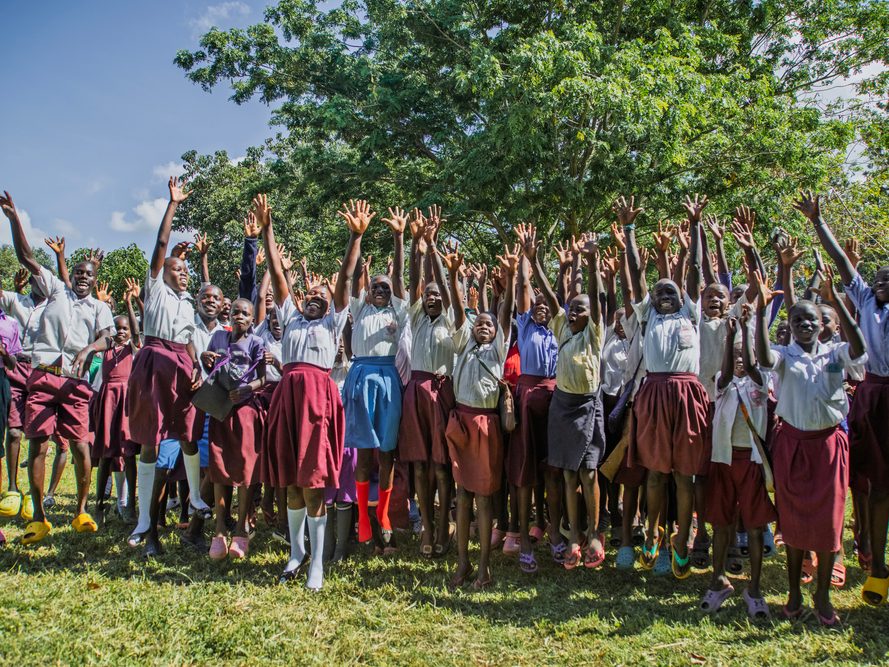
Melisha’s club organises debates on issues relating to their education journey and social life. “The debates include girls and boys. The whole school community is invited, including the teachers, to watch the debate on topics relating to education, school hygiene, body changes, Menstrual hygiene management and general health,” says Melisha. She adds that other activities include drama, music, sports and inter-house competitions which bring club members together on a regular basis.
GEM clubs are making a difference
In her experience, GEM clubs have empowered children and created a lot of awareness on issues hindering girls’ stay in school like menstrual periods. “Today members know that periods are normal. Boys no longer laugh at the girls in case of an occurrence,” advises Melisha. She adds that the debates have supported club members to gain self-confidence while talking to others as well as public speaking, including in English. “Now I can stand before a community and advocate for girls’ education.”
Club initiatives that keep girls in school
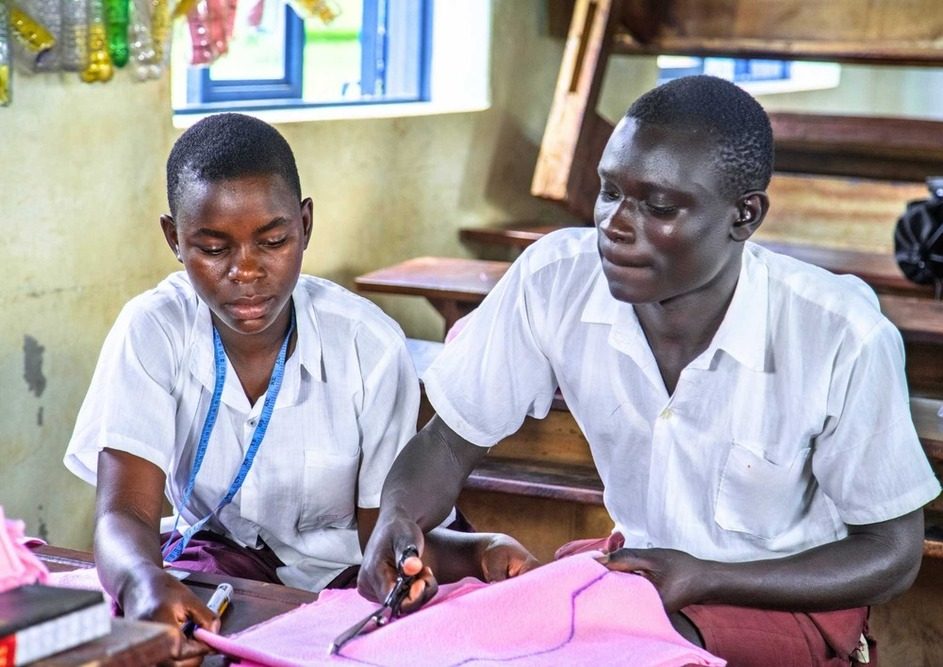
Her GEM club plans activities focused on keeping girls in school. Each week she helps to mobilise club members to make re-usable sanitary pads that support the girls during their menstrual periods to continue with their classes. “Before we started making the pads, many girls would miss class during their periods, but now class attendance has improved,” she notes, adding that both boys and girls make reusable sanitary pads.
“When I go home, I ask my parents for materials and I make the pads for my sisters.”
Darius, GEM club member
Darius, a member of the same club, makes sanitary pads to support his sisters to stay in school. “I make about 6 sets of reusable sanitary pads when we meet as a club. When I go home, I ask my parents for materials and I make the pads for my sisters,” says Darius. He adds that the pads support personal hygiene as the girls can go to the changing room and freshen up.
By combining practical support with peer-led advocacy, GEM clubs help to dismantle cultural and practical barriers to girls’ education.
GEMs taking a stand for the environment
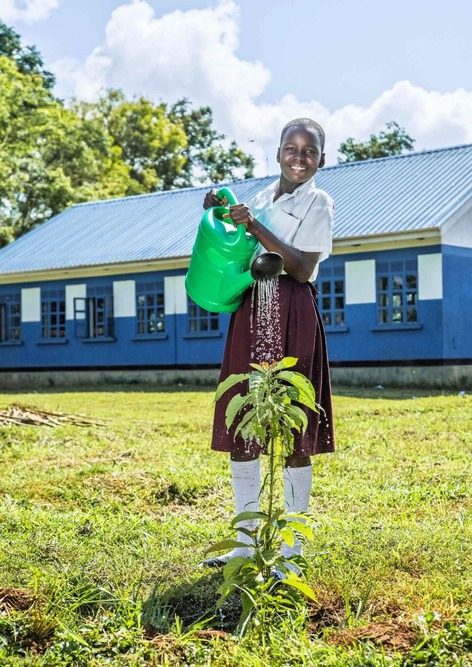
Melisha and her fellow GEM members are also committed to supporting environmental initiatives, recognising the risks that climate change poses to both the school setting and the girls’ continuity of education.
“At the start of each school term, I coordinate the 30 club members to plant trees around the school compound,” Melisha explains. “We grow mango, guava, and other shade-providing trees that not only support a greener environment but also offer shelter for outdoor school activities and help protect school structures from strong winds.” She adds that her GEM club has also established a vegetable garden, growing greens and tomatoes to supplement school meals and promote better nutrition among pupils.
Bob Ocilo, National Project Manager for Reaching and Enrolling Out Of School Children Including Refugee Boys and Girls in Schools in Uganda (RISING) project advises that teachers in 150 schools supported by the project have been trained on the Girls Education Movement Model and have been able to form 270 clubs in 9 districts implementing the project in development and humanitarian settings.
“GEM clubs are not only amplifying girls’ voices but also creating a ripple effect within schools and communities. By supporting girls to identify and speak out about the challenges they face, we are nurturing a generation of empowered young women and building a stronger, more protective environment where every girl has the opportunity to thrive and complete her education,” says Bob.
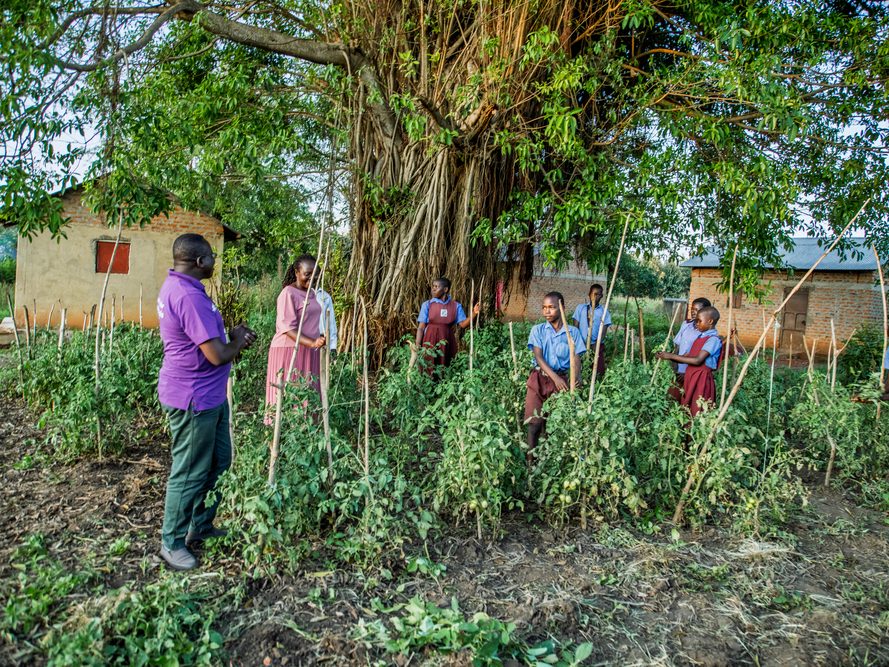
About RISING
Plan International, in partnership with Stromme Foundation, is implementing the four-year (2022-2025) quality and inclusive education project, Reaching and Enrolling Out Of School Children Including Refugee Boys and Girls in Schools in Uganda (RISING).
The RISING project is on a mission to increase access to quality primary education and learning and educate every child in partnership with the Education Above All Foundation’s Educate A Child Programme, with support from the Qatar Fund for Development.
The ultimate goal of RISING is to contribute to the enrolment of 100,000 out-of-school children, especially girls, in marginalised and refugee communities in 9 districts (Adjumani, Mad-Okollo, Obongi, Yumbe, Nebbi, Lira, Alebtong, Kamuli and Buyende) of Uganda.


